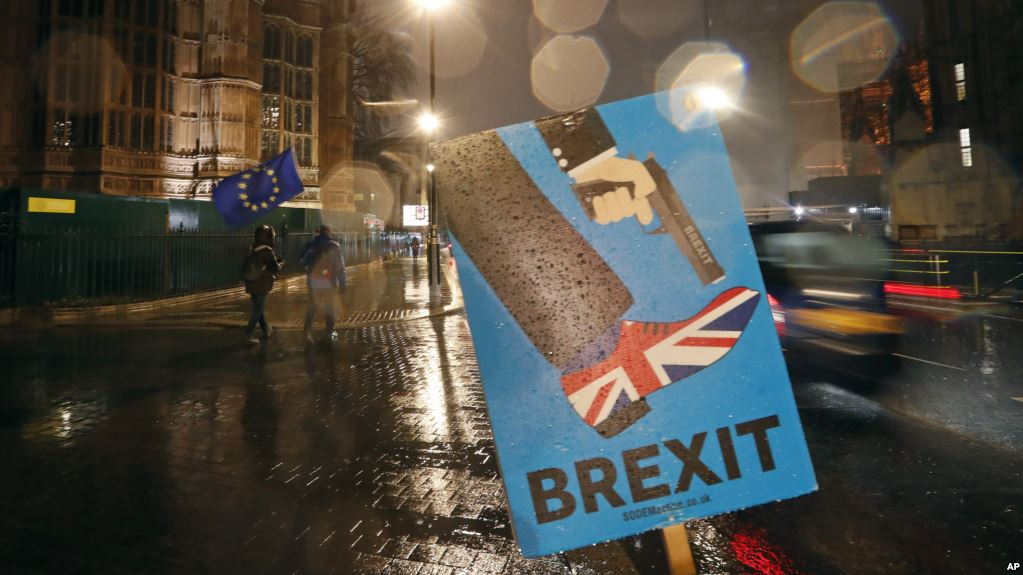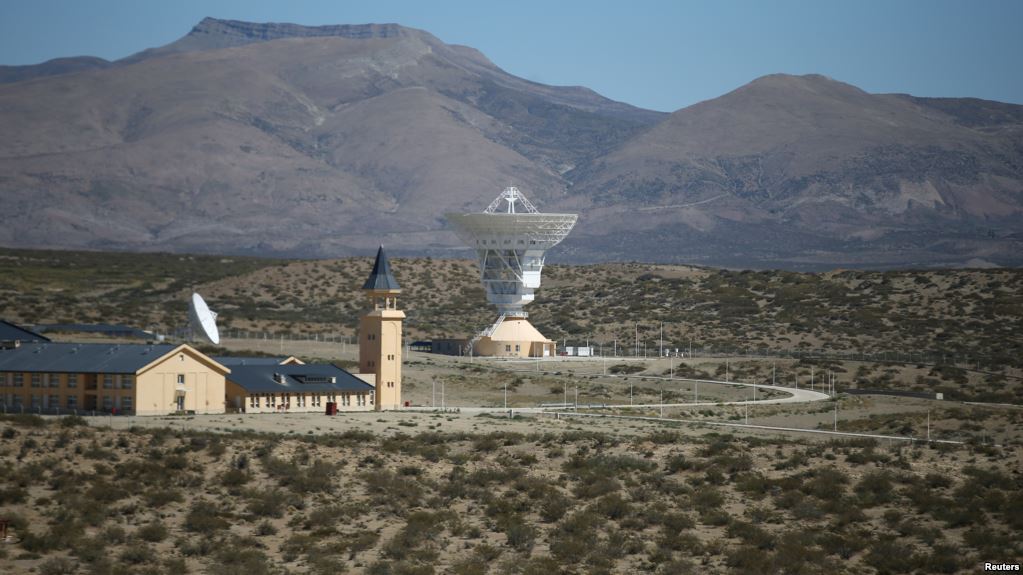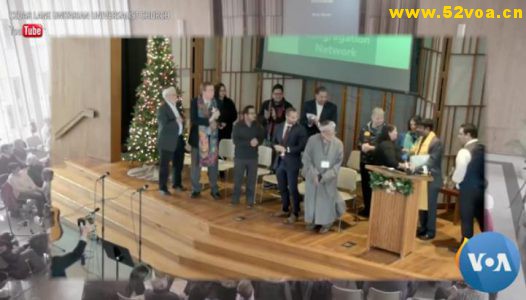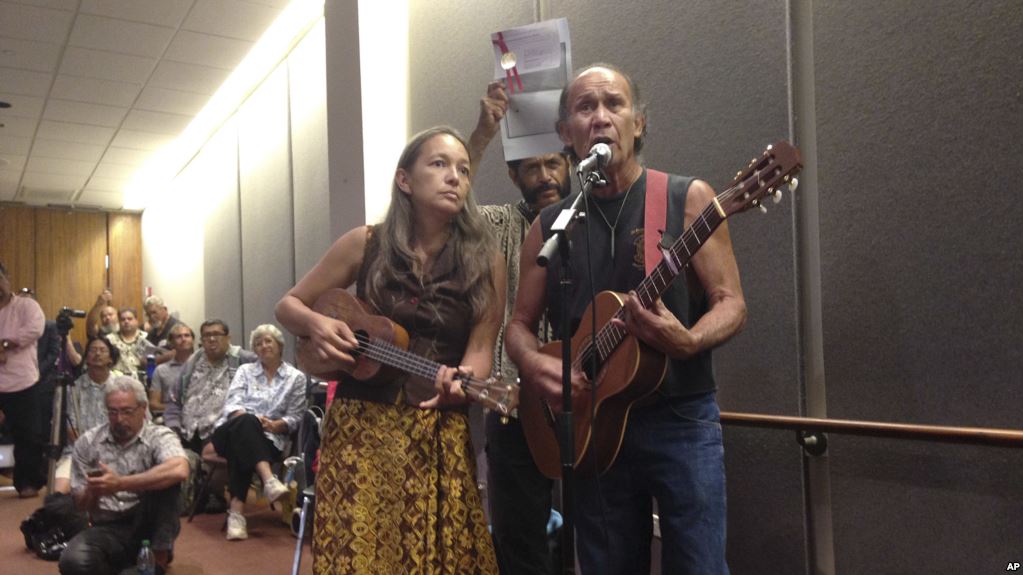뉴스&스피킹(영자신문)
하루 10분이면 영어에 대한 두려움을 극복하고 누구나 유창하게 영어를 구사하실 수 있습니다.
-
 Brexit Could Bring Economic Problems to EU Countries Workers at the Pedrosa & Rodrigues clothing factory in Portugal are worried that something 2,000 kilometers away could endanger their jobs.
Brexit Could Bring Economic Problems to EU Countries Workers at the Pedrosa & Rodrigues clothing factory in Portugal are worried that something 2,000 kilometers away could endanger their jobs.
Sales to Britain make up about half of this family business’s yearly earnings of about 14 million euros. But a British withdrawal from the European Union could make products from Portugal more costly.
The factory could possibly lose up to 7 million euros a year, says Ana Pedrosa Rodrigues, who works with buyers of the company’s products. “It would be extremely worrying.”
Businesses like Pedrosa & Rodrigues fear they could be hurt by Brexit – Britain’s exit from the EU’s single market.
The single market ensures that there are no tariffs on trade and free movement for goods, workers and money. As Brexit-related economic changes hit Europe, small countries like Portugal could be badly hurt. But no one is sure about the exact effects because the terms of Brexit have yet to be decided.
Some economic predictions are worrisome. Portugal says Brexit could destroy up to 26 percent of Portuguese exports of goods and services and take 1 percentage point off the country’s Gross Domestic Product (GDP).
The Organization for Economic Co-operation and Development (OECD) serves as a policy adviser to developed economies. It estimates that if Britain leaves without an agreement on new trade terms with the EU, it could reduce the EU’s GDP by about 1 percentage point by 2020. That represents more than half a year’s economic growth at current rates. It could be three times worse for Britain, the OECD says.
The organization also said that some countries and businesses across the EU will feel more pain than others.
Last year, the European Committee of the Regions said Ireland would be greatly hurt by Brexit because it is so close to Britain. That closeness has tied their economies.
Cities like Stuttgart, in Germany, could also have economic problems, it said. The automobile industry in and around Stuttgart earns a lot from exports to Britain. Chemical and plastics companies in Belgium and the Netherlands also are at risk, the committee said.
Portugal has had close ties with Britain since the Treaty of Windsor in 1386. The Portuguese textile industries could be badly hurt. Its factories are based in one of the poorest areas in Portugal and Western Europe.
The textile companies have already experienced problems. Sales to Britain have fallen by more than 3 percent since the 2016 Brexit decision, according to Paulo Vaz. He is the director-general of the Portuguese Textile and Clothing Association, which represents about 500 textile companies.
Vaz noted that one reason for the drop in sales is weakness in the value of British money, the pound. This makes purchases from countries like Portugal that use the euro more costly. It is also because of worried British businesses and citizens who are cutting back on purchases as Brexit nears.
The Pedrosa & Rodrigues factory sits on the end of a small town in Portugal’s industrial center, where textile companies make about 130,000 jobs.
Ana Pedrosa Rodrigues remembers when her parents started the company with five employees in 1982.
She and her two older brothers recently joined their parents at the company. The other employees include husbands and their wives, fathers and sons, brothers and sisters. Almost all of the workers live in town.
A loss of British business would create job losses.
Sofia Cardoso and her husband both work at the company. She is not afraid.
“We’ve been through crises before and we’ve survived,” she said. “I think we’ll get through this one, too.”
The Associated Press' Barry Hatton reported this story. Susan Shand adapted it for VOA Learning English. George Grow was the editor.View -
 China's Space Station in Argentina Is a Mystery A tall, powerful antenna looks up to the sky from the Patagonia desert in Argentina.
China's Space Station in Argentina Is a Mystery A tall, powerful antenna looks up to the sky from the Patagonia desert in Argentina.
It is part of a Chinese space station built there over 200 hectares. A 2.5-meter high fence surrounds the area. The space station came with a promise of a visitor’s center to explain its purpose.
China’s space program, including the space station, is run by its military, the People’s Liberation Army. The Chinese foreign ministry says the station in Patagonia is for civilian use only and is open to the public and media.
The station became operational in April.
Chinese media have presented the station as a peaceful space observation and exploration tool. They also say it played a key role in China’s landing of a spacecraft on the dark side of the moon in January.
The space station operates with little oversight by the Argentine authorities. That is the conclusion of international law experts who reviewed hundreds of pages of Argentine government documents obtained by the Reuters news agency.
Visits to the station are by appointment only. Experts say the United States is concerned about the station’s true purpose. That secrecy also has worried those who live near the area.
The agreement with China
The agreement to build the space station came in 2015, during the presidency of Cristina Fernandez. Opposition lawmakers questioned why there was nothing within the agreement that required the station to be for civilian use only. But, the Argentine Congress approved the deal.
Former Foreign Minister Susana Malcorra said in 2016 that Argentina has no control over the station’s operations. That year, she negotiated a new deal that required it to be for civilian use only. But international law experts say the deal does not provide a process for Argentina to make sure the station is not being used for military purposes.
Argentina’s space agency CONAE told Reuters it has no workers based at the station but CONAE members do make “periodic” visits and listen to radio transmissions. But experts agree that the Chinese could easily hide data in these transmissions.
Juan Uriburu is an Argentine lawyer who worked on two major Argentina-China joint projects. He asked, “How do you make sure they play by the rules?”
Concerns over spying
Garrett Marquis is a spokesman for the White House National Security Council. He said the deal was “another example of opaque and predatory Chinese dealings.”
Some radio astronomy experts say the concerns of the United States have been overblown. Tony Beasley is director of the U.S. National Radio Astronomy Observatory. He said the Patagonian station could, in theory, “listen” to other governments’ satellites to gather data. But he added that could be done with other equipment, too.
“Anyone can do that. I can do that with a dish in my back yard…” Beasley said.
Argentine officials have defended the Chinese station. They have said the agreement with China is similar to the one it signed with the European Space Agency (ESA).
However, the law experts who examined the documents said there is one notable difference: ESA is a civilian agency.
“All of the ESA governments play by democratic rules,” Uriburu said. “The party is not the state. But that’s not the case in China. The party is the state.”
Reuters asked CONAE, the local government and China’s embassy for permission to visit the station. CONAE said it was not able to approve the visit, but said it was planning a media day.
“They don’t let you see”
The space station is a 40 minutes away by car from Las Lajas, a town of 7,000 people. Maria Espinosa, the mayor of Las Lajas, said 30 Chinese employees work and live on the station. It employs no local people. Espinosa said she rented her house to Chinese space station workers before they moved to the base. She said she had visited the site herself at least eight times.
Other than Espinosa, Reuters could not find anyone else in the town who had visited the station. One local said his sister was among a group of students who visited last year. They saw an eating room and a game room, he said.
Others in Las Lajas said they rarely see anyone from the station. Alfredo Garrido is a shop owner in the town. He said, “These people don’t allow you access, they don’t let you see.” He says he believes the station “is not a scientific research base, but rather a Chinese military base.”
I’m Jonathan Evans. And I'm Ashley Thompson.View -
 Woman Brings New Attention to Sanctuary Movement Rosa Gutierrez Lopez was frightened when immigration officials told her she had to leave the United States by December 10, 2018.
Woman Brings New Attention to Sanctuary Movement Rosa Gutierrez Lopez was frightened when immigration officials told her she had to leave the United States by December 10, 2018.
The 40-year-old undocumented immigrant from El Salvador had been living in the U.S. since 2005. She lived in northern Virginia, doing restaurant work and other jobs. She is the mother of three U.S. citizens.
Gutierrez Lopez received deferred action by Immigration and Customs Enforcement, or ICE, after she was detained in 2014 for being in the country illegally.
Each year, she checked in with ICE and her request for deferred action was granted. Her lawyer says the renewal was mainly granted because her young children are American citizens and one of them has a genetic disorder.
In 2017, however, the first year of the Trump administration, Rosa noticed a difference when she reported to ICE for her yearly check-in.
“I was told to report to a different location and the official there began asking me all sorts of questions – questions they had never asked me before,” she told VOA, speaking in Spanish.
In the end, ICE did not renew her deferment. Officials ordered her to leave the country. She also had to wear an electronic device to record her movements.
But then, a friend told her about sanctuary Christian religious centers and she was able to find one.
Since mid-December, Gutierrez Lopez has been living at the Cedar Lane Unitarian Universalist Church in Bethesda, Maryland.
She is the first publicly known case in the Washington, D.C. area since churches across the nation began resisting the Trump administration’s immigration policies.
While she lives in sanctuary, her lawyers are requesting her asylum because of high rates of organized crime in El Salvador. Criminal groups killed three of her close family members in recent years. Gutierrez Lopez fears the same will happen to her if she returns.
Hector Perez Casillas is the immigration lawyer representing her. He believes she would be in serious danger if she returned to El Salvador.
“They would be immediately targeted because they know that: A) she’s been here in the United States for so long; B) she has American children; and C) one of them is ill, making her an extra vulnerable target."
Church sanctuaries grow
Gutierrez Lopez is one of 50 undocumented immigrants known to have sought sanctuary in 39 churches across the country. That information comes from the Church World Service, or CWS.
While the total number of people now in sanctuary is unknown, the CWS notes there has been an increase since the start of the Trump administration.
At that time, there were 37 reported cases. The number of churches offering sanctuary also rose from 400 in 2017 to more than 1,100 today.
Noel Andersen is with the CWS. He says the Trump administration’s policy of arresting and deporting undocumented immigrants who have no criminal records is responsible for the increase.
The churches, in Anderson’s words, “see that people are being dehumanized.”
Though sanctuary churches may fear government raids, for now immigration authorities are obeying the established tradition of staying out of churches, schools and hospitals.
Steve Camarota agrees with the tradition, but has strong criticism for the sanctuary movement. He is the research director at the Center for Immigration Studies, or CIS, an organization based in Washington, D.C.
"It's understandable why in any individual case, you might say, ‘Well, couldn't we make an exception for this nice guy, this nice lady.' And I think everyone feels a lot of sympathy for that. But when you do that, you end up with the scale of illegal immigration that we now have.”
The American non-profit organization, Southern Poverty Law Center, a legal support organization, identifies CIS as a hate group. It accuses CIS of publicizing white nationalist and anti-Semitic ideas.
Growing publicity
Reverend Abhi Janamanchi is the religious leader at the Cedar Lane Unitarian Universalist Church, where Gutierrez Lopez is staying. He said cases like hers get a lot of support and media attention.
“So far, we’ve received…offers of support even from total strangers,” he told VOA.
Acting as a sanctuary is a big project, involving many volunteers. Janamanchi said the Cedar Lane Church has 150 volunteers providing services such as meals, language services and security.
Because Gutierrez Lopez cannot leave church grounds without risking arrest, her children visit on weekends. But only her daughter fully understands why she remains at the church.
“My daughter, who is 11 -- she does know. She tells me: ‘Mommy, I miss you, I want you to be in our home.’ But I tell her I can’t,” she said.
Her life at the Cedar Lane Church is likely to continue for some time. Janamanchi has promised the church would support her "for as long as it takes."
I’m Alice Bryant.View -
 Thai Princess Enters Race for Prime Minister The older sister of Thailand’s king says she will run for prime minister in elections to be held next month.
Thai Princess Enters Race for Prime Minister The older sister of Thailand’s king says she will run for prime minister in elections to be held next month.
The move by Princess Ubolratana Mahidol breaks a long-held Thai tradition of keeping the royal family independent from politics. She is the sister of Thailand’s current King Maha Vajiralongkorn, and the oldest daughter of former King Bhumibol Adulyadej.
On Friday, King Maha criticized his sister’s action. He said it “conflicts with the country’s traditions, customs and culture.”
The 67-year-old princess was nominated Friday by the opposition Thai Raksa Chart Party. The party is linked to former Thai leader Thaksin Shinawatra and his sister, Yingluck Shinawatra. Each had served as Thailand’s prime minister until they were ousted.
The Thai Raksa Chart Party was launched in November by relatives and supporters of the Shinawatras. Parties linked to the Shinawatras have won every Thai election in recent years.
The family still remains popular in many areas, especially in the rural northeastern provinces.
Princess Ubolratana currently does not have the same official standing in Thailand as other members of the royal family. She had to give up her highest royal titles more than 40 years ago when she married an American man and moved to the United States. However, she is still very popular in Thailand and is commonly called and treated as a princess.
Because Thailand is a constitutional monarchy, the king and other royal family members are not supposed to get directly involved in politics. Traditionally, Thailand’s royal family has had close ties to the military.
Princess Ubolratana confirmed her decision to run in a message on Instagram, saying she desires to “lead the country to prosperity.”
Thailand’s current prime minister is Prayuth Chan-o-cha. He is a former army chief who led the 2014 military coup that ousted the country’s last elected government, led by Yingluck Shinawatra.
Prayuth also accepted on Friday the nomination as a candidate for prime minister from his military-backed party. He has been considered the front-runner for the March 24 elections. Observers say this is because his government has made changes to the constitution and election rules that make it difficult for political parties without military backing to win.
Some political experts say Ubolratana’s entry could greatly change the campaign because she is a different kind of candidate. The Thai royal family enjoys a very high level of popularity and respect among the public. Thailand also enforces strict laws banning criticism of the king or other royal family members.
Allen Hicken is a political scientist at the University of Michigan who specializes in Southeast Asian studies. He called the decision a “game changer” for the race. “In the event Thaksin-aligned parties win the election, it makes it very difficult for the military and royalists to contest, protest, or seek to overturn the result,” Hicken said.
I’m Bryan Lynn.View -
 Native Hawaiians Divided on Federal Recognition More than 100 years ago, the American government took control of the Hawaiian islands and took away Native Hawaiians’ land rights.
Native Hawaiians Divided on Federal Recognition More than 100 years ago, the American government took control of the Hawaiian islands and took away Native Hawaiians’ land rights.
Now, officials at the United States Civil Rights Commission are urging lawmakers to permit Native Hawaiians to establish their own independent government.
But many Native Hawaiians reject the idea. They say they will not accept anything less than Hawaii’s complete independence. And, they say, they want control of more than 400,000 hectares of the islands’ land.
How did we get here?
Sailors from Polynesia first settled the Hawaiian Islands around the year 400. For more than 1,000 years, the Native Hawaiians lived together in small groups, farmed and fished for their needs, and governed themselves. In the late 1700s, one native leader overpowered the others and united the islands into a single kingdom.
But in the early 1800s, the area changed sharply. Other groups came. Many Native Hawaiians died from the new diseases that came with the foreigners. Others were forced from their lands to permit the newcomers to create large sugar cane farms. American planters soon dominated the islands’ economy.
In time, the planters, United States government officials and Marines ousted from power Hawaii’s last ruler, Queen Liliʻuokalani. In 1898 the U.S. government officially annexed Hawaii, and in 1959 named it the country’s 50th state.
Today Native Hawaiians are only about 20 percent of the state’s population.
Calls for sovereignty
Noelani Goodyear-Ka’opua is an expert on Native Hawaiian social movements. She is also Native Hawaiian, or Kanaka Maoli.
Ka’opua says Native Hawaiians have been protesting the loss of their rights and calling for sovereignty since the 1800s. But they do not always agree on what they are asking for. Some want to form a government and operate as a kind of nation-within-a-nation, like Native American tribes on the U.S. mainland. Others want to be a country independent from the United States.
In 2014, U.S. government officials held a number of hearings across Hawaii to learn what Native Hawaiians thought about forming their own government. A large majority of people who spoke in the hearings said they did not want it. Instead, they argued the U.S. violated international law when it removed the queen as ruler. The kingdom, they say, continues to exist.
Yet in 2016, the U.S. government released a final rule to permit Native Hawaiians to form a government – in other words, the nation-within-a-nation solution.
Noelani Goodyear-Ka’opua points out that the rule does not permit Native Hawaiians control of any land currently controlled by the U.S. government.
“How is this in any way to our benefit?” she asks. “We wouldn’t even be getting the crappy deal that Native American nations have. And once you accept a lesser deal, a better deal is impossible.”
Another Hawaiian historian does not reject the U.S. government’s offer completely. Bavianna McGregor is a founding member of the Department of Ethnic Studies at the University of Hawaii, Manoa. She says the U.S. officially recognizing that Native Hawaiians have the right to govern themselves is an important step toward full independence.
She says she hopes to see an independent Native Hawaiian government within an independent Hawaii. But, she says, she does not think she it will happen in her lifetime.
I’m Caty Weaver.View

